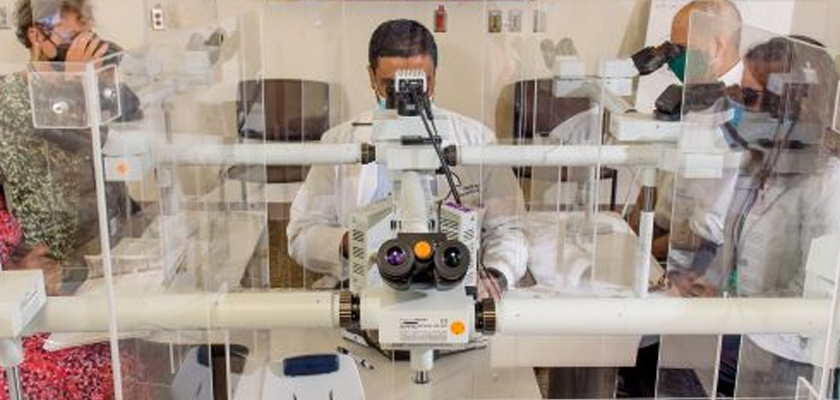The University of Alabama Birmingham (UAB)’s Department of Pathology received a $4.4 million grant for scientific equipment from the National Institute of Allergy and Infectious Diseases (NIAID).
The NIAID is part of the National Institutes of Health (NIH).
According to UAB public relations specialist Anna Jones, the Department of Pathology will purchase new equipment with the funding over the next year.
Jones said the new equipment would help prepare for future pandemics.
She also said it would help with “high-containment research productivity.”
Scientists use high-containment facilities to examine dangerous infectious pathogens, according to the Centers for Disease Control (CDC).
Director of Clinical Microbiology at UAB Medicine and director of the UAB Fungal Reference Laboratory Sixto M. Leal Jr. said that the facilities will allow UAB researchers to “safely work with SARS-CoV-2, influenza, tuberculosis, dimorphic molds and more.”
“The equipment we will receive through this grant will be a major step forward for our investigators and advance work that has the potential to improve the lives of Alabamians and people around the world,” Leal said.
During the COVID-19 Pandemic, the NIAID and its director Dr. Anthony Fauci received criticism for their role in funding “gain of function” research in Wuhan, China.
Gain of function research is research that intentionally alters the genetics of an organism in a way that changes its biological functions, such as a pathogen’s transmutability to humans.
Before Congress, Fauci denied the U.S. had funded gain-of-function research in Wuhan in July 2021, but an NIH official later admitted that U.S. funds had, in fact, been sent to a lab in Wuhan, China, to test bat coronaviruses.
In August of this year, Fauci announced he would be resigning in December but did not mention the gain of function research.
To connect with the author of this story, or to comment, email will.blakely@1819news.com or find him on Twitter and Facebook.
Don’t miss out! Subscribe to our newsletter and get our top stories every weekday morning.










